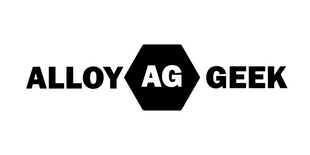Description
Alloy Geek SMO 04 - Sulfur in Mineral Oil Certified Reference Material
The SMO 04 Standard is a high-quality Certified Reference Material (CRM) meticulously designed for the calibration and validation of techniques used for the analysis of sulfur in mineral oil. It follows the stringent guidelines as laid down by ISO Guides 31, 34, and 35 for the creation of the CRM and its Certificate of Analysis. The certified composition of the SMO 04 Standard is characterized by a 0.5000% sulfur content in a mineral oil matrix, ensuring a high degree of accuracy and reliability in analytical results. Packaged in an amber bottle, it protects the integrity of the mineral oil matrix from light degradation ensuring consistent performance across various analytical applications.
| Element | Certified Reference Value (weight %) | Uncertainty (weight %) |
|---|---|---|
| Sulfur | 0.5000 | 0.00500 |
In conformity with the provisions of ISO Guide 30, the SMO 04 Standard is authenticated as a CRM, signifying its high precision and accuracy for use in the field of sulfur in mineral oil analysis. The detailed Certificate of Analysis that accompanies this CRM provides all the necessary information, including the certified value and uncertainty, ensuring transparency and reliability. The SMO 04 Standard aids laboratories in achieving consistent, accurate, and reliable analytical results, reinforcing the credibility and reliability of analytical outcomes in various research and industrial contexts.
Certified Reference Material (CRM): A certified reference material, or CRM, is a type of reference material that has been thoroughly analyzed and characterized using multiple validated methods to determine its composition or properties. The results of these analyses are then used to establish certified values, along with associated uncertainties. CRMs are produced and certified by accredited organizations or laboratories following internationally recognized standards, such as ISO Guide 34 (ISO 17034). The certification process includes interlaboratory comparison and statistical analysis to ensure accuracy and traceability.


